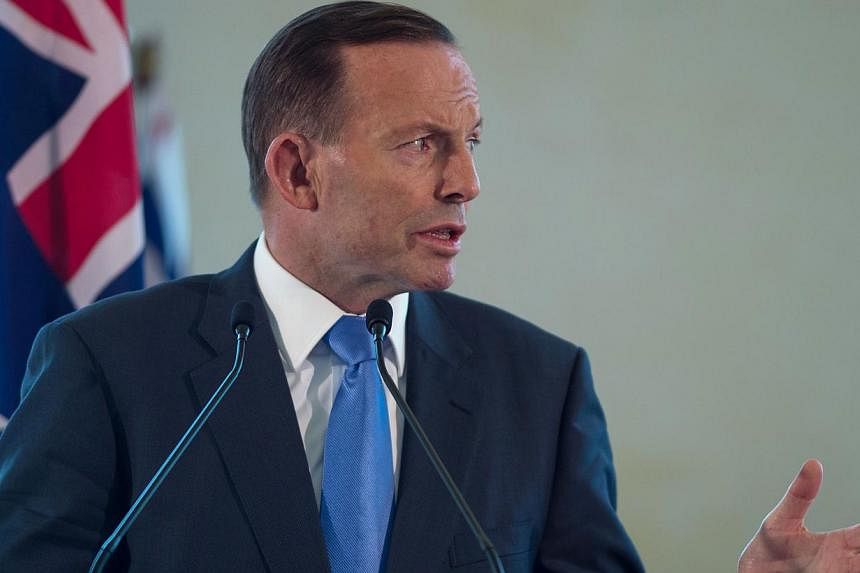|
SYDNEY (AFP) - Australia on Friday raised its terror threat level to "high" for the first time in a decade on growing concern about Australian jihadists returning from fighting in Iraq and Syria.
The heightened alert after years on "medium" officially means a "terrorist attack is likely" and comes after repeated government warnings that attacks could happen.
"There are people with the intent and the capability to mount attacks here in Australia," Prime Minister Tony Abbott told a press conference.
The lifting of the threat level was "not based on knowledge of a specific attack plan but rather a body of evidence that points to the increased likelihood of a terrorist attack in Australia", Abbott added in a joint statement with Attorney-General George Brandis.
"Security and intelligence agencies are concerned about the increasing number of Australians working with, connected to, or inspired by terrorist groups" such as the Islamic State in Iraq and Syria (ISIS), Jabhat Al-Nusrah, and Al-Qaeda, he said.
"The threat they pose has been increasing for more than a year." The "high" alert is just below "extreme" - the top level - which would indicate a "terrorist attack is imminent or has occurred".
It followed a similar decision by Britain in August, which raised its terror threat risk level to "severe" meaning an attack is thought "highly likely".
Abbott said his country's alert was now "broadly comparable to the threat level in the United Kingdom".
Monash University's Global Terrorism Research Centre director Greg Barton said the alert was last raised after the September 11, 2001 attacks and following the 2002 Bali bombings.
"We've never had the alert bumped up when nothing's happened - when there's no incident," Barton said, adding that the current move was "largely driven by developments with Islamic State".
'Significant threat to our community'
The government believes up to 60 Australians are fighting alongside jihadists for Islamic State, while another 100 were actively working to support the movement at home.
Abbott said based on previous experience with Australians who went to Afghanistan and Pakistan to join the Taleban, they had retained the "inclination to engage in terrorist activity" when they returned home.
"We do know that people coming back from the Middle East are militarised and brutalised, accustomed to kill without compunction, do pose a significant threat to our community should they not be under the closest possible supervision," he said.
Barton said the higher alert would give authorities more resources in patrolling public locations and in sifting through intelligence about potential attacks.
"Given that our big concern at the moment is the targeting of soft targets, particularly something like a train station in the city... our best line of defence... is intelligence," he said.
Abbott stressed the new threat level was not linked to his government's decision to support US military action in Iraq and Syria, adding: "We have experienced significant levels of threats for a long time now. "We would be targets regardless of anything that we did."
The Australian Strategic Policy Institute's executive director Peter Jennings agreed, saying that while Australia's alliance with the US might see some "extra risk", it was "only a result of a prolonged process of radicalisation involving significant numbers of Australians over the last few years".
Brandis stressed that the decision was not targeted at Muslims.
"This is not about any particular community, but it is a sad fact that the wicked people who recruit and exhort to violence Australian citizens are preying on the Muslim community so as to encourage their young men to fight... in the Middle East," he said.
"The steps that we have taken, the legislation we are preparing in consultation with that community in particular, is designed to protect them... and the interests of their communities."
The decision came two days after police raided an Islamic centre in Brisbane and charged two men for alleged involvement in recruiting and sending jihadist fighters to Syria.
Abbott said Australians "should continue to go about their lives" despite the increased alert, although security would be stepped up.
"What people will probably notice is more security at airports, more security at ports, more security at military bases, more security at government buildings and more security at public events," he said.
Canberra recently announced a A$630 million (S$725 million) counter-terrorism package to boost support for security agencies.
|

